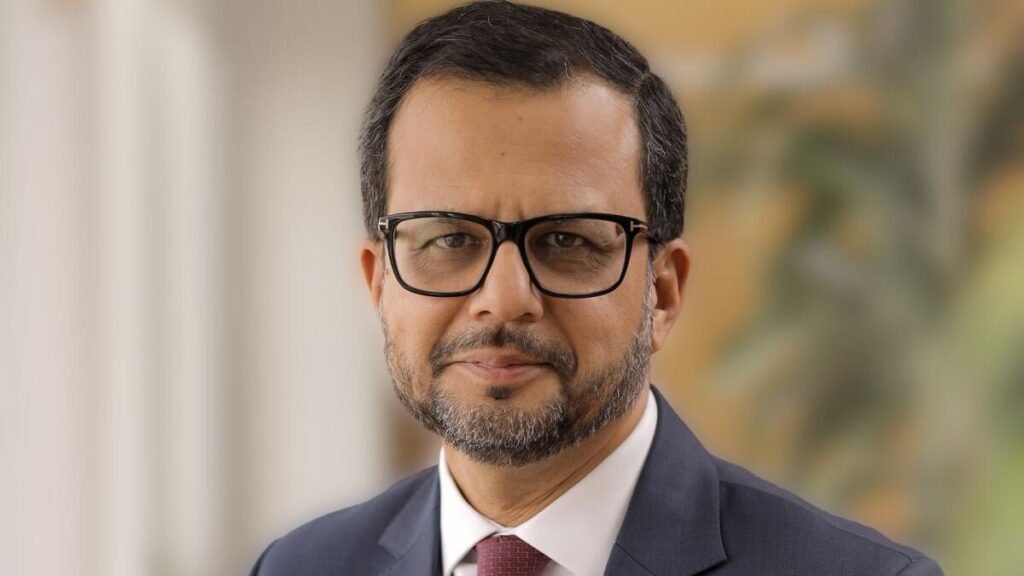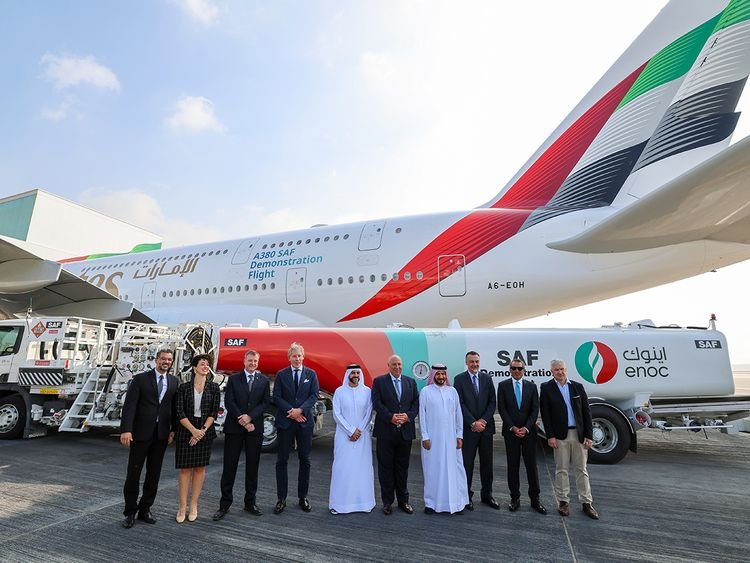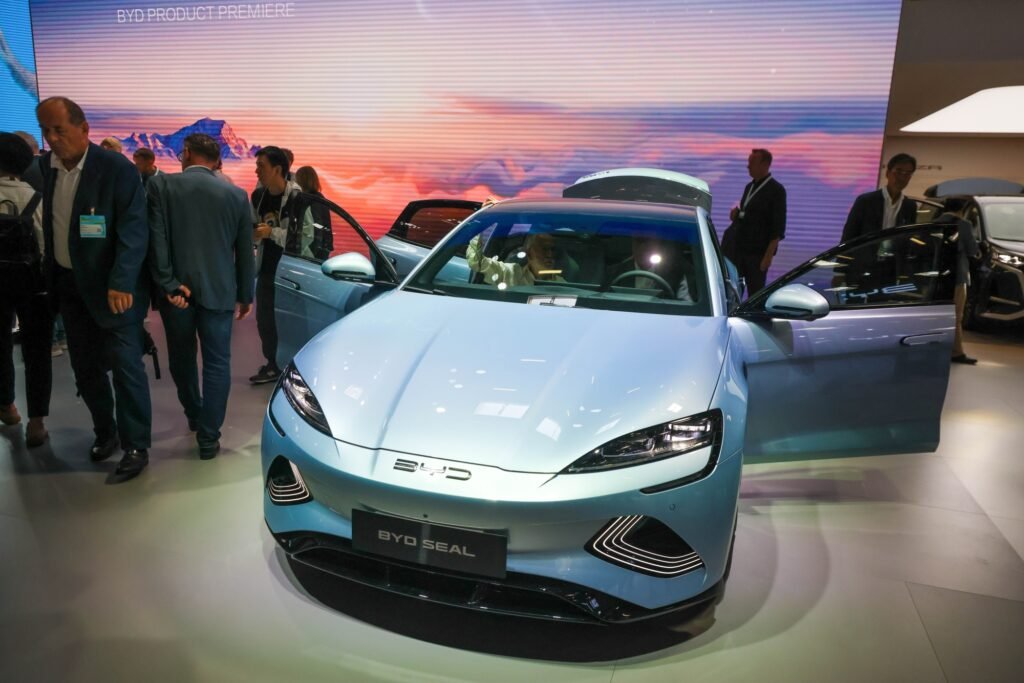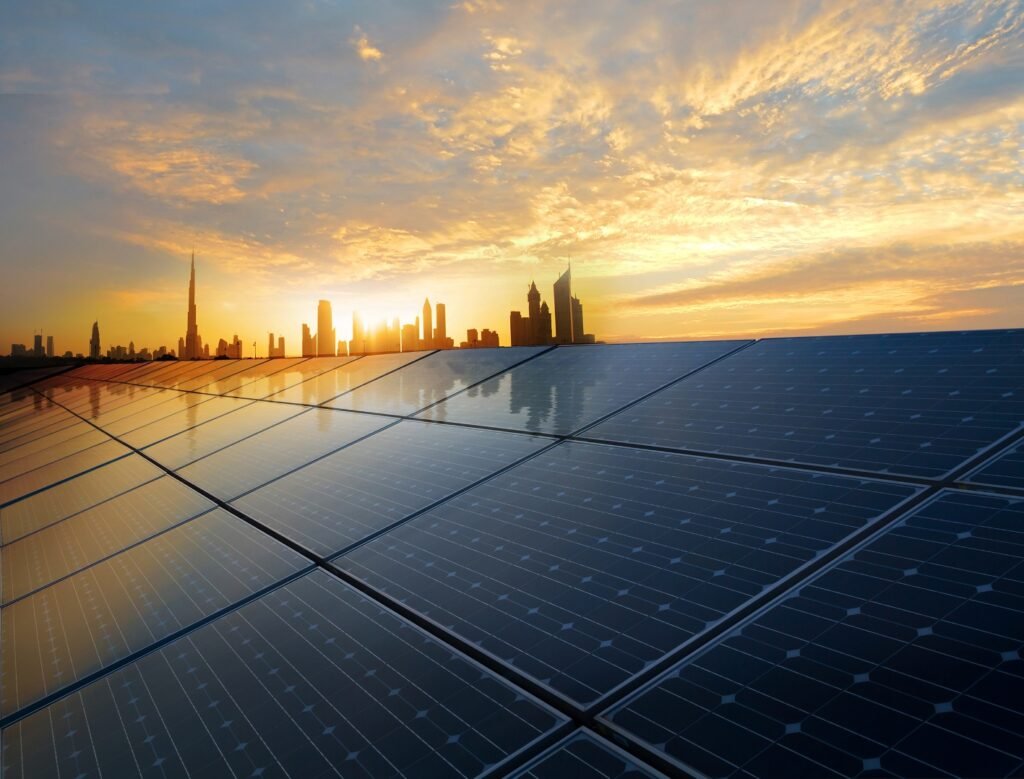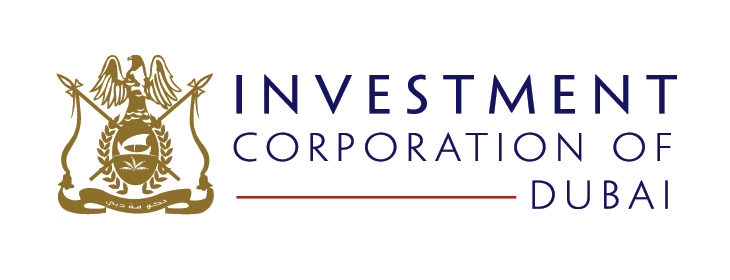The circular economy model that meshes economic gains with a sustainability ethos is the buzzword for Dubai Electricity and Water Authority (DEWA) even as it keeps pace with burgeoning demand for new infrastructure and services. At the heart of the utility major’s growth strategy is a vision to transform into a globally leading sustainable innovative corporation committed to achieving Net Zero by 2050. Illustrating DEWA’s focus on sustainability, His Excellency Saeed Mohammed Al Tayer, MD and CEO of DEWA, said: “In accordance with the directives of His Highness Sheikh Mohammed bin Rashid Al Maktoum, Vice President and Prime Minister of the UAE and Ruler of Dubai, DEWA is committed to achieving the highest levels of sustainability across its operations while meeting development goals. “DEWA places a high priority on supporting the Dubai Clean Energy Strategy 2050 and the Dubai Net Zero Carbon Emissions Strategy 2050 to provide 100% of the energy production capacity from clean energy sources by 2050. We are proud of DEWA’s contribution to reducing net carbon dioxide emissions in the Emirate of Dubai by 19% in 2022 compared to 2010. This mitigation also supports objectives of the Carbon Abatement Strategy to reduce carbon emissions by 30% by 2030.” His Excellency Al Tayer added, “DEWA’s strategy for the circular economy constitutes a comprehensive framework for determining its directions towards expanding the scope of current applications and adopting the best international practices in supporting the circular economy.” There have been numerous initiatives DEWA has been implementing over the years in this shift to a greener style of operation. Greater efficiencies of grids and generation units, significant emissions reductions and recycling efforts are all part of an elaborate plan to slash the carbon footprint significantly. DEWA has made a significant achievement in improving electricity and water production efficiency by 37.78% in 2022 compared to 2006. This is equivalent to a cumulative reduction of 82 million tons of carbon dioxide emissions. DEWA’s Circular Economy Strategy seeks to optimize use of resources while enriching social, economic, and environmental value, thus promoting sustainability. The strategy is based on five cardinal principles, namely Circular Design and Use of Circular Materials; Optimized Asset Management; Value Retention and End-of-Life Treatment; Renewable Energy, Energy and Water Efficiency; and Circular Partnerships. The strategy highlights DEWA’s value chain, including smart users, circular procurement, and supplier engagement. It being the Year of Sustainability in the UAE and amid intense preparations to host the 28th Conference of the Parties of the United Nations Framework Convention on Climate Change (COP28) at Expo City Dubai later this year, DEWA is intensifying its efforts to promote the adoption of the circular economy model and its applications across its various divisions, while simultaneously encouraging community participation in ensuring the sustainability of development plans. DEWA is always looking to enhance employee engagement in sustainability initiatives through international events and gatherings it organizes year-long, encouraging them to actively contribute to sustainable development. These events include the Water, Energy, Technology and Environment Exhibition (WETEX) and Dubai Solar Show (DSS). DEWA is organizing the 25th WETEX and DSS from 15 to 17 November 2023. The exhibition is a standout event in the global sustainability calendar, being the largest of its kind in the region and one of the largest specialized exhibitions anywhere in the world. There are several other ways in which DEWA promotes sustainability practices within its offices and operations. It is among the first organizations in Dubai to spearhead the concept of green buildings. In 2019, DEWA notched a first with getting for Dubai the platinum rating by LEED (Leadership in Energy and Environment Design) for Cities, from the US Green Buildings Council (USGBC), becoming the first city in the Middle East and North Africa to be awarded this prestigious certificate. DEWA currently boasts several green buildings that have earned LEED ratings, including the Sustainable Building in Al Quoz, the largest government building in the world to receive USGBC’s Platinum Rating for green buildings. In addition, DEWA inaugurated the green data center of DEWA’s Data Hub Integrated Solutions LLC (Moro Hub) at the Mohammed bin Rashid Al Maktoum Solar Park. It is recognized as the world’s largest solar-powered data center by the Guinness World Records. DEWA works in consonance with the Dubai Clean Energy Strategy 2050 and the Dubai Net Zero Carbon Emissions Strategy 2050 and its efforts have contributed to reducing carbon emissions in Dubai by 19% in 2022, when compared to 2010. DEWA is a committed partner in Dubai’s ambitious plan to achieve carbon neutrality in the next 30 years, boosting efforts to achieve the Dubai Carbon Abatement Strategy to reduce emissions by 30% by 2030. DEWA is fully tuned in to the Dubai 2040 Urban Master Plan through a whole host of global projects, programmes and competitions that contribute to accelerating the shift towards zero-energy buildings, and establishing a sustainable energy-saving model. DEWA is also partnering with the Emirates Green Building Council and various government and private entities, thus underscoring its pivotal role in supporting Dubai’s mission to reduce carbon emissions. Energy efficiency focus The efficient, effective and economical management of energy used internally has also been another focus of DEWA’s sustainability blueprint and it constantly bids to improve energy efficiency within its premises. Towards this goal, it has implemented a number of energy efficiency initiatives and projects, including retrofitting of office buildings, transmission substations, pumping stations, reservoirs and power generation plants. The retrofitting exercise included the installation of sensors to facilitate illumination control, and the incorporation of Treated Sewage Effluent (TSE) water plants for landscape irrigation, among others. In addition, DEWA has also installed photovoltaic panels on rooftops of buildings and carports at various office premises. The implemented projects of this nature have achieved cumulative power and water savings of about 52 gigawatt-hours (GWh) and 2.5 million imperial gallons (MIG), respectively through 2022. These figures are equivalent to AED22.76 million in savings and carbon dioxide mitigation of 20,899 tones. Starting from March 2020, DEWA has transformed all its customer happiness centers


